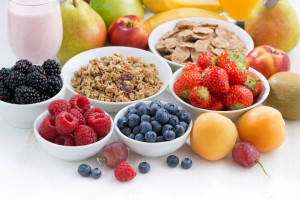 Eating well, exercising and practicing mindfulness are all important aspects of maintaining a recovery plan which works to build strength and endurance for the long haul. Addiction to drugs and alcohol can negatively impact the body’s ability to process nutrients properly. However, eating healthy is essential for vitality and energy to maintain sobriety. For anyone in recovery, the following five healthy foods are amazing for mental and physical wellness.
Eating well, exercising and practicing mindfulness are all important aspects of maintaining a recovery plan which works to build strength and endurance for the long haul. Addiction to drugs and alcohol can negatively impact the body’s ability to process nutrients properly. However, eating healthy is essential for vitality and energy to maintain sobriety. For anyone in recovery, the following five healthy foods are amazing for mental and physical wellness.
Poultry and Fish – tyrosine is an amino acid found in both poultry and fish. Drugs and alcohol prevent the body from processing tyrosine properly. Essential to the creation of neurotransmitters dopamine and norepinephrine, these foods will promote mental clarity and an overall sense of well-being. Be sure to check out salmon, one of the best fish for rich Omega-3 fatty acids. Putting lean chicken protein into any diet will make it a healthier one.
Bananas – tryptophan is another amino acid which is not processed correctly when drugs and alcohol are used. Tryptophan is key to the formation of the neurotransmitter serotonin which aids in sleep and relaxation.
Yoghurt – probiotics aid in healthy digestion. Alcohol and opiates disrupt the gastrointestinal system which can cause constipation and diarrhea. Probiotics are good bacteria which the gut needs to break down food that gets eaten everyday. There is also evidence good bacteria (probiotics) have mood stabilizing properties.
Blueberries – antioxidants are very healthy for the mind and body. Blueberries are packed full of them as are many fruits and vegetables. Addiction creates an overload of toxins and free radicals in the body which destabilize it and promote poor health and nutrition. Antioxidants help boost the immune system, fight off disease and clear out existing toxins.
Vegetables – many vitamins are present in vegetables of all kinds. In active addiction, improper nutrition absorption, along with poor diet causes malnutrition. A diet rich with vegetables helps restore proper nutrition level while improving the look and feel of skin and hair which commonly suffers deterioration during addiction.
Check with a doctor to discuss any dietary changes or additions during recovery. While it is important to eat healthy, nutritious foods and meals, every individual’s circumstances are different. While one person can digest a certain kind of food, another may have existing allergies or ones which developed as a result of the toxic effects of drugs and alcohol on the body. Nevertheless, seek out these healthy superfoods as first choice when looking to build a healthy plan for recovery.
For more information on how to repair your body and nutrition after recovering from drug addiction, contact Lead Recovery at 800-380-0012. Trained counselors and therapists are available to answer questions and provide support.

